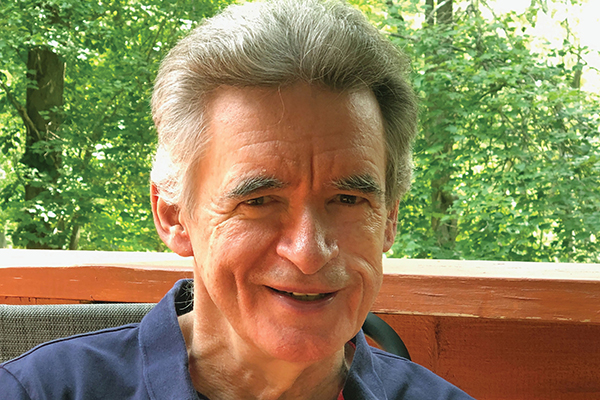Healing Your Spirit
3 Keys to Practicing Spiritual Self-Care as a Cancer Survivor
by Walter V. Moczynski, DMin, BCC
Anyone who has received a diagnosis of cancer can tell you about the moment when they knew their life was about to change. It can feel like a slight tug, or a tidal wave hitting your very existence. There can be uncertainty, fear, and a deep questioning of what may or may not lie ahead. The treatment options, or lack of them, the side effects, the reframing of your place in the world. And then there’s the big question: Will I live?
In these challenging moments, spirituality can bring a footing to shifting ground, space and time to reflect, courage to act, and realistic hope for the future.
Spirituality can mean many different things for many different people. It can be as simple as a breath. In fact, the Latin root of the word spirit means “breath.” The basic act of conscious breathing is one way to maintain, revisit, or introduce spirituality as part of your life. A single breath may connect you to the environment, all living beings, the cosmos, a transcendent God, or all the above.
Regardless of whether your understanding of spirituality is connected with a particular religion, with rich traditions, rituals, and community, or with your own personal practice, exploring avenues for spiritual self-care can bring wholeness and wellness to your decision making, cancer treatment, and recovery. There are three key ways in which you can enhance spirituality in your life as you journey through cancer.
Creating Time and Space
Creating time and space for spiritual self-care can be daunting in today’s busy society. On top of that, cancer introduces a new layer to your daily schedule, with medical appointments, treatments, recovery, and follow-up visits. Intertwined are moments of anxious waiting for test results, fatigue, and pain. Your time can evaporate quickly.
However, this challenging reality need not overwhelm you. Finding spiritual space for yourself can help ensure that cancer is only a part of – not your total – life.
If you can, set aside a time each week to settle your thoughts, to breathe, and connect to your spirit in a peaceful way. Your sacred space is not limited to a fixed time or location. It can be the early morning hours, midday, or late in the evening. You can hold this space in your home or carry it with you to medical appointments. While some people are drawn to stillness or quiet places, others may opt for a brisk walk, swimming laps, or a long run.
Spirituality can bring a footing to shifting ground, space and time to reflect, courage to act, and realistic hope for the future.
Once you have established your sacred time and place, allow yourself to find a grounding peace. You may begin with breath repetitions, meditation, or prayer. Let your thoughts freely flow and settle where you begin to experience tranquility. If you are wondering, Why me?, explore with your medical team the science behind your condition. If you feel there is a spiritual aspect, find a spiritual guide to listen to your concerns. Start to move from the Why me? of cancer to the What now? Seek to embrace life, family, and friends in a new light, set new goals, and liberate yourself from cancer’s monopoly on your life.
Integrating Meaningful Signs and Symbols
Signs and symbols are a beautiful means of connecting to your spirituality. They allow your senses to intertwine with your thoughts, to convey an experience that sometimes words cannot express. Yours may be a sacred word, phrase, object, prayer, poem, work of art, photo, or song. Find one or more that reminds you of a sacred connection, that radiates comfort, strength, joy, and hope. Hold on to it.
Seeking Spiritual Resources
The spiritual horizon is infinite with resources to meet whatever you are facing. It is important to recognize that you are not alone. Spiritual support can come from your family, friends, coworkers, faith community, and even your medical team.
However, while you may be surrounded by many caring people, you still may sometimes feel alone in coping with cancer. Reach out to a spiritual director, clergy person, chaplain, counselor, or another spiritual care professional. Explore sacred texts, inspirational stories, rites, rituals, worship, music, and journaling that connect with you. You may also want to consider connecting with a spiritual community, such as a church, mosque, sangha, synagogue, temple, or other faith assembly to deepen your spirituality and reduce feelings of isolation.
You are not alone on this journey.
An eternal presence of hope and love is woven within many religious traditions and spiritual practices. May you remain in or find one that resonates with you.
Dr. Walter Moczynski is director of the Center for Spiritual Care at the Dana-Farber Cancer Institute in Boston, MA, as well as a field education supervisor at Harvard Divinity School in Cambridge, MA.
This article was published in Coping® with Cancer magazine, September/October 2019.


